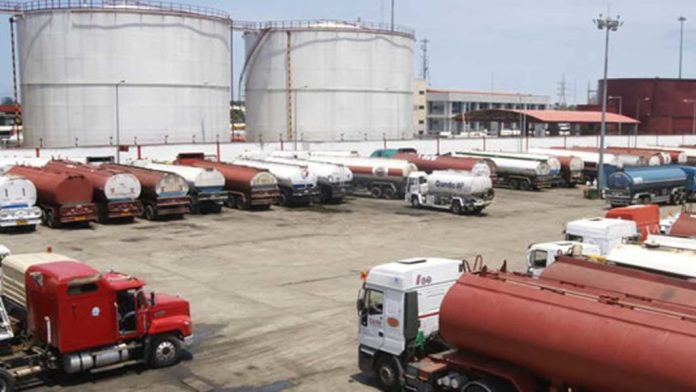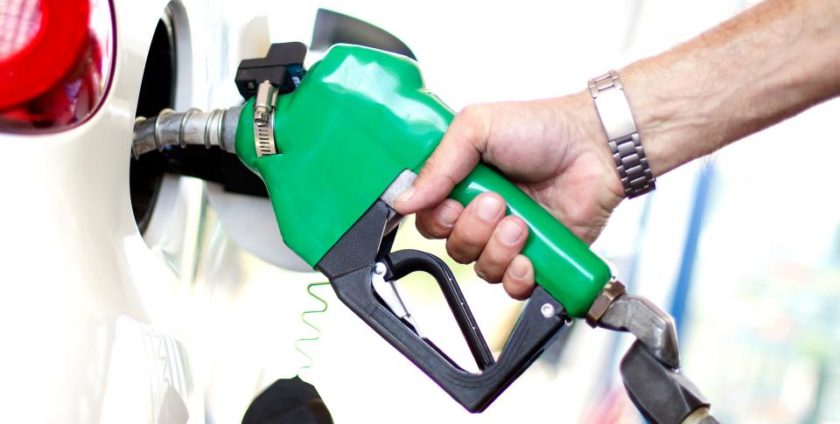Marketers Battle Dangote In Court, Insist On Petrol Import
Three oil marketers, AYM Shafa Limited, A. A. Rano Limited, and Matrix Petroleum Services Limited, have asked the Federal High Court in Abuja to dismiss a suit filed by Dangote Petroleum Refinery and Petrochemicals.
The marketers, in a joint counter affidavit marked: FHC/ABJ/CS/1324/2024, and dated November 5, 2024, a response to an originating summon filed by Dangote Petroleum Refinery and Petrochemicals, argued that granting the application of refinery would spell doom for the country’s oil sector.
They emphasised that the plan to monopolise the oil sector is a recipe for disaster in the country.
Dangote refinery in its originating summon dated September 6, 2024, had sued Nigeria Midstream and Downstream Petroleum Regulatory Authority and Nigeria National Petroleum Corporation Limited, AYM Shafa Limited, A. A. Rano Limited, T. Time Petroleum Limited, 2015 Petroleum Limited, and Matrix Petroleum Services Limited as 1st to 7th defendants respectively.
The refinery prayed the court to declare that NMDPRA was in violation of Sections 317(8) and (9) of the Petroleum Industry Act (PIA) by issuing licenses for the importation of petroleum products.
It stated that such licenses should only be issued in circumstances where there is a petroleum product shortfall.
It also urged the court to declare that NMDPRA is in violation of its statutory responsibilities under the PIA for not encouraging local refineries such as the company.
Shafa, A. A. Rano, and Matrix Petroleum, however, responded that Dangote refinery does not produce adequate petroleum products for the daily consumption of Nigerians.
They noted that the plaintiff had not placed anything before the court to prove the contrary.
They argued that they are well qualified and entitled to be issued an import licence by NMDPRA to import petroleum products in Nigeria within the meaning of Section 317(9) of the PIA.
They also noted that they are fully qualified for the issuance of the import licences issued to them by the 1st defendant, as they duly met all the legal requirements for the issuance of such import licences, before the same were issued to them.
“The import licences lawfully and validly issued to the defendants did not in any way whatsoever, cripple the plaintiff’s business or its refinery.
“The import licenses issued to the defendants by the 1st defendant are in line with the provisions of the Petroleum Industry Act, 2021, the Federal Competition and Consumer Protection Act, 2018, and other relevant laws,” they contended.
They insisted that giving Dangote Refinery the power of monopoly in Nigeria’s petroleum industry as it sought in the instant suit, would kill competitive pricing of petroleum products in the country.
Stressing that such an act would further deteriorate the country’s critically ailing economy.
They also added that it would “unleash untold hardship on Nigerians, all of which constitute a recipe for disaster in the polity”.
The marketers explained that if Nigeria puts all her energy eggs in one basket by stopping the importation of petroleum products and allowing the plaintiff to be the sole producer and supplier of petroleum products in Nigeria, with liberty to determine the prices at which it supplies the products, the prices of petroleum products will continue to rise and energy security will elude Nigeria.
They also noted that should the refinery break down being a monopolized sector, the country will be plunged into a hot mess of energy crisis.
“That in the event of any breakdown in or obstruction to the production chain of the plaintiff which stops it from producing Nigeria will be thrown into energy crises because it does not have the reserves that would last it for at least 30 days that it would need to order, pay for, freight and import refined products into tanks in Nigeria.
“That amidst the glaring absence of any credible and demonstrable proof that the plaintiff refines and supplies adequate petroleum products for the daily use/consumption of Nigerians, is a recipe for disaster in Nigeria’s energy sector.”
They further told the court that granting the reliefs sought by the plaintiff was a design to leave Nigeria and Nigerians at the mercy of the plaintiff with respect to the availability and cost of purchasing petroleum products in the country.
The presiding judge, Justice Inyang Ekwo fixed January 20, 2025, for a report of settlement or service.
Dangote exports products
Meanwhile, three foreign firms have accounted for about 75 per cent of what’s being lifted from the 650,000-barrel-per-day Dangote refinery, a new report has stated.
A report by Bloomberg on Wednesday said Vitol Group, Trafigura Group, and BP Plc are the dominant buyers of fuels from the oil refinery that’s reshaping petroleum trading in Africa and Europe.
The trio has accounted for the vast majority of the plant’s shipments since flows began ratcheting up around the middle of this year, according to data from Precise Intelligence, a new oil-and-gas trading analytics firm based in Geneva.
The report quotes products offtake from February 27 to October 10 with other customers including the local market taking 25 per cent of total fuel purchases from the company.
Earlier this year, Dangote began operations and kick-started the production of diesel, aviation fuel, and LPG before subsequently progressing to the production of Premium Motor Spirit (petrol).
Once it’s fully up and running, Dangote should be able to process about 650,000 barrels a day of crude into products including gasoline and diesel.
That will far exceed the fuel making capacity of any single plant in Europe or Africa, helping to reshape the regions’ oil and fuel trading.
The emergence of Dangote has already trimmed a glut of Nigerian crude.
Analysis of the report showed that the refinery has loaded almost 6 million tons of fuel since starting up.
This is equivalent to almost 45 million barrels, loading rates averaged about 35,000 tonnes a day in October, its data showed.
Dangote itself said late last month that the refinery had reached processing rates of about 420,000 barrels a day of crude.
The plant is also selling into the Nigerian market.
The composition of fuel cargoes loading from Dangote is closely watched because it offers clues into where the refinery is at in terms of starting up different processing units.
On the products sold, the figures show that automotive gas oil — commonly known as diesel — is the largest cargo type being lifted, accounting for the highest proportion of shipments. This is followed by fuel oil, which ranks second in terms of volume.
Together, these two products make up more than 60 per cent of the total output being collected from the plant.
Other significant fuel types being processed include gasoline, which is used for cars and other light vehicles, and jet fuel, primarily utilised by the aviation industry for aircraft.





